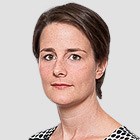Pressure on the government to help struggling Britons has intensified after a leading thinktank warned that falling living standards for the poor threatened the biggest rise in inequality since Margaret Thatcher was prime minister.
The Resolution Foundation said Theresa May would need to make good on her pledge to support “just about managing” households as it released a report showing that rising inflation and an end to recent strong jobs growth would hit the least well-off hardest.
Its warnings chime with other forecasts for a squeeze on family budgets on the back of sluggish wage growth, welfare cuts, rising global oil prices and the pound’s sharp fall since the Brexit vote. The drop in sterling has made imports more expensive and there are already signs that is being passed on to consumers, with inflation hitting its highest level for more than two years in December.
The Resolution Foundation’s study found that the current parliament would be the worst for living standards for the poorest half of households since comparable records began in the mid-1960s and the worst since the early years of Thatcher’s 1979-90 premiership for inequality.
Since its sharp increase in the early 1980s – a period of high unemployment, factory closures and a cut in the top rate of tax from 83% to 60% – inequality has broadly remained flat.
But the Resolution Foundation forecast that between 2015 and the next general election in 2020 incomes for the poorest half of households will fall by 2%.
That compares with a rise of 4% during the last parliament and 1% between 2005 and 2010 – the five-year period that included the deepest recession since the 1930s.
Torsten Bell, director of the Resolution Foundation, said: “Britain has enjoyed a welcome mini-boom in living standards in recent years. But that boom is slowing rapidly as inflation rises, productivity flatlines and employment growth slows.
“The squeeze in the wake of the financial crisis tended to hit richer households the most. But this time around it’s low- and middle-income families with kids who are set to be worst affected.
“This could leave Britain with the worst of both worlds on living standards – the weak income growth of the last parliament and rising inequality from the time Margaret Thatcher was in Downing Street.
“The prime minister’s focus on supporting just managing families is absolutely right if we are to avoid the next few years being like the 1980s without the feelgood factor.”
The prediction that inequality is set to start rising again is based on the thinktank’s forecast that while incomes will fall for the poorer half of households they will rise by about 5% for the richest fifth over the next four years.
The foundation blames the upcoming living standards squeeze on a combination of stagnating pay, rising inflation and the rollout of more than £12bn of welfare cuts. It emphasised that the pound’s weakness since the Brexit vote and other economic factors such as flat productivity growth were only part of the picture. The unequal nature of the squeeze would be the result of government policy on tax and benefits.
“The vote to leave the European Union does not, thus far, appear to have impacted on the macroeconomy or employment, but it has hastened the end of ultra-low inflation and increased how far it is likely to rise in the next few years,” the report said.
“But, in some ways regardless of the average level of household income growth, Britain is also actively choosing to increase inequality. Despite welcome policies such as the national living wage, the plans the new prime minister has inherited are likely to ensure that the proceeds of growth are shared unequally and many families made worse off.”
The thinktank sees inequality rising to record highs by 2020 on three different measures: the 90:10 income ratio, which is the income of a household 90% up the income distribution scale, divided by that of a household only 10% of the way up; on the 80:20 ratio, calculated in a similar way from those 80% up the distribution and those 20% up; and on the Palma ratio, the income share of the top 10% divided by the income share of the bottom 40%.
“All forecast measures show large increases in inequality over the next four years, with all reaching record highs by 2020-21. This is a starkly different pattern from the trend of the past 20 years, over which time inequality has been broadly flat or even declining,” the report said.
Underscoring the challenge for May’s government as it seeks to redress deep regional imbalances in the UK, the Resolution Foundation also highlighted persistent inequalities between south-east England and the rest of the country.
Incomes in the vast majority of the country were more than 10% lower than in most wealthy region, south-east England, its analysis found. North-east England and the West Midlands had the lowest levels of income, both 20% lower than in the south-east.
On the capital, the report added: “Contrary perhaps to received wisdom London is not the region with the highest income, and once housing costs are taken into account, incomes in the region are roughly 10% lower than in the south-east.”
A spokesperson for the Treasury said: “Living standards reached their highest ever level in 2015, and are forecast to be higher still by the end of the parliament.
“Millions of people are taking home more of what they earn thanks to the government’s actions to reduce income tax bills and introduce the national living wage. We are helping households with the cost of living by increasing the supply of affordable housing, banning letting agents’ fees, and freezing fuel duty, and our investment to boost productivity will raise living standards in the long run.”
John McDonnell, the shadow chancellor, said the Resolution Foundation was damning: “Labour called on the government at the autumn statement to end the unfair cuts to in work benefits, while they were going ahead with tax giveaways to a wealthy minority, but Philip Hammond chose to carry on with the work of his predecessor.
“It is becoming clearer by the day that working families will be forced to pay for a Tory Brexit that favours the rich and not the rest of us, as our country faces its biggest rise in inequality since Margaret Thatcher.”












